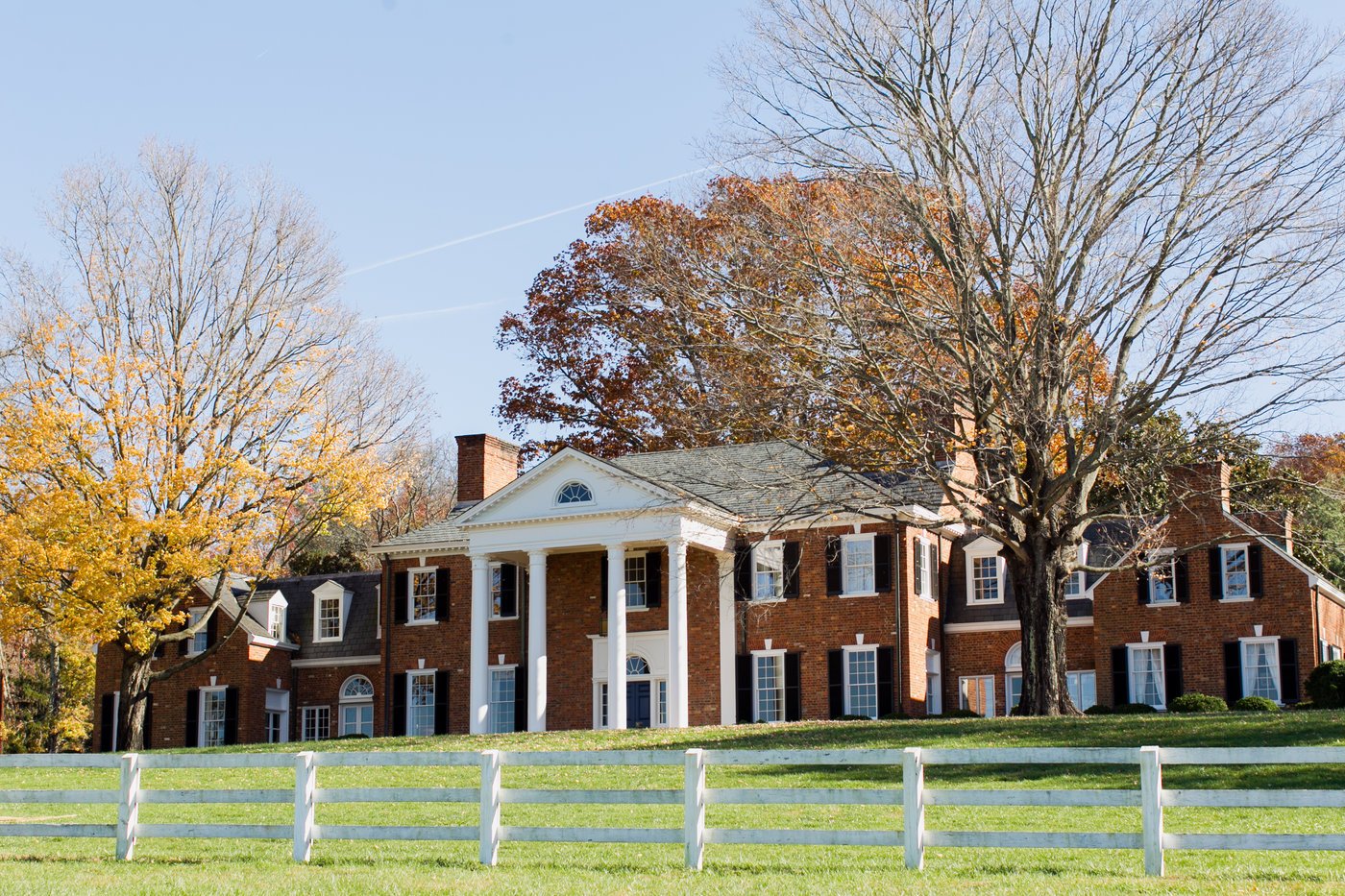
A Legacy of Elegant Entertainment
Located in the heart of historic Virginia, the house and barn grounds of Verulam have been the site of distinctive gatherings for a near century. Originally owned by the Van Clief family, the house built in 1936 exemplifies the adage of “they just don’t make them like that anymore.” Not some modern interpretation of classic grand style, it’s the original statement.
During its heyday, Verulam Farm was the destination for social events hosted by the Ewald family. Today, we carry out not only that tradition, but the tradition of farming. And it’s a beauty we seek to conserve for current and future generations. The property is maintained under federal and state conservation agreements that ensure the setting remains pristine and undeveloped.
The attraction of Verulam Farm extends beyond its scenery to include its location. Easily accessible from major locations in Albemarle County, the farm is only three miles from the University of Virginia. A quick car ride puts you and your guests literally in another world.
The History of Verulam
In the fall of 1936, New York attorney Courtlandt Van Clief commissioned architect Marshall Swain Wells to build an estate on a 1,700 acre parcel of land centered on what is now Exit 114 of Interstate 64.
Marshall Wells was among the first class graduating The School of Architecture of the University of Virginia in 1928. He was a prolific residential architect in central Virginia between 1929 and 1950. Most of his projects were designed in the Jeffersonian and Colonial Revival styles including Georgian Revival. He is known for his use of high quality material, the exacting details of his drawings, and his use of breezeways and complex gabled roofs. Wells worked with Charles Gillette to design the gardens of Verulam. Gillette was the most prominent landscape of his day. He is credited with developing the “Virginia Garden” style characterized by its understated classicalism and attention to detail. Wells and Gillette shared a common belief that landscape should compliment the most distinctive elements of the home. This can be seen in the sunken garden to the west of the croquette court off Verulam’s southern exposure.
World War II contributed to the construction of Verulam in two respects. Firstly, the White House fence was replaced with a taller more secure fence. Marshall Wells purchased the old White House gates and used it to encase Verulam’s Gillete gardens. Secondly, the rationing of war materials forced Wells to rely on wood more than building methods of the day would have suggested. In addition, it is literally the case that the construction of Verulam required an Act of Congress.
The Van Clief family owned Verulam until the early 1960s and the Van Clief family continues to have a strong presence in Albemarle County. Courtlandt Van Clief’s daughter, Faith, who grew up in the house, currently resides in Farmington.
In 1969, Verulam was purchased by the Ewald family. The Ewalds initially purchased Verulam as a summer home but it was not long before they moved from New York and established a permanent presence in Albemarle County. The Ewalds bred racehorses and more fully developed Verulam’s horse facilities. Perhaps the most enduring mark left by the Ewald family is Verulam’s tradition for entertaining. Kitchie Ewald’s annual Christmas party was very well known in Charlottesville, in addition to her children’s parties. Most forty somethings in Albemarle County have a story about Verulam.
During their stewardship, the construction of Interstate 64 was complete. As a practical matter, I-64 divided Verulam and created the 500 acre parcel that exists today. Other portions of the farm were developed into The Rocks subdivision and the Cold Springs subdivision. The Ewalds sold the house on 500 acres to Danish industrialist Peter Nielsen in 1986. Mr Nielsen used the house sparingly for the next 17 years. During this time, he greatly simplified the gardens. Mr. Nielsen sold Verulam to the previous owners in 2002. The previous owners commenced a decade long restoration of the house and most of the Gillette gardens. In 2024, Verulam Farm was sold to the current owners who are continuing the restoration of the house, gardens, and barn.




